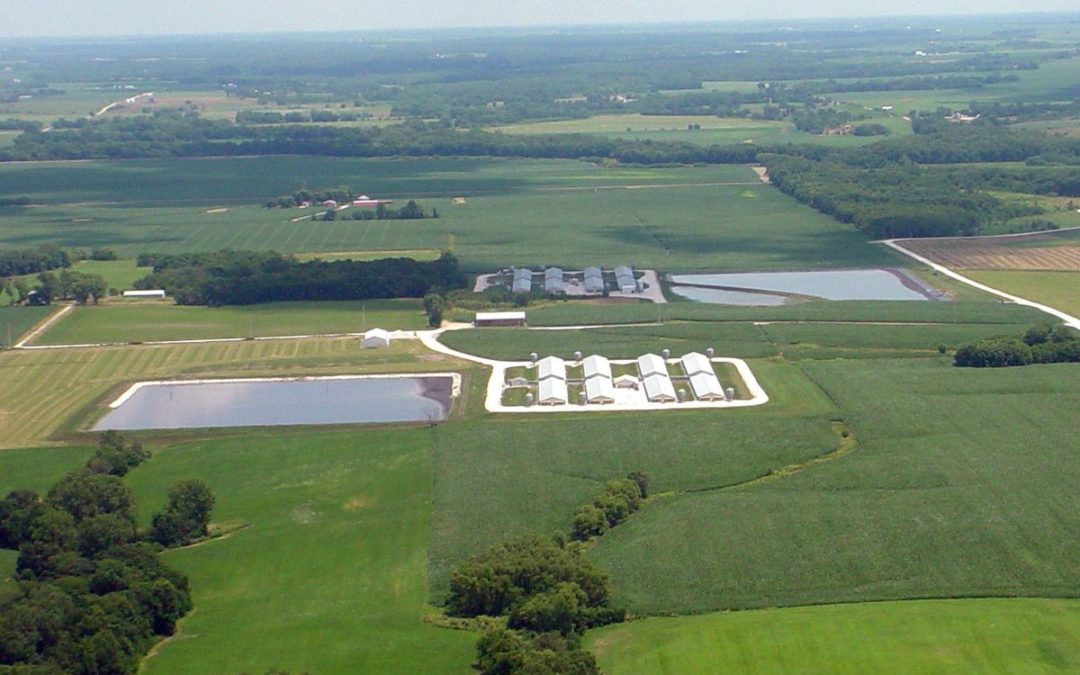One year after moving its corporate headquarters to Enid, Hanor Co. is taking steps to streamline its pork production operations in the state.
Hanor, parent company of Roberts Ranch, announced in 2015 it would move its corporate headquarters from Wisconsin to Enid, a move completed last July to a 55-acre complex at 4103 E. Garriott. Hanor now employs 365 workers across sites in Oklahoma and 650 employees nationwide at sites in Iowa, North Carolina, Illinois, Wisconsin and Ohio.
Tom Layne, human resources manager at Hanor, said the company is restructuring its Oklahoma operations to boost company jobs in the state and increase efficiency in Hanor’s hog production.
Hanor’s Oklahoma operations begin in Ames, at a gene transfer center where semen is collected from 180 boars to artificially inseminate 26,000 sows. The sows are maintained in three separate sow farms in the Ames area: two that contain about 10,000 sows each and one that contains about 6,000 sows.
Once piglets from those 26,000 sows are born and weaned they are trucked to Mooreland, where Hanor operates 24 facilities. The young pigs go into nurseries and from there to “finishers,” facilities where they grow until they are ready to be shipped to Hanor’s end-customer, Triumph Foods of St. Joseph, Mo., a pork processing company.
Hanor’s 24 sites in Mooreland until recently had all been nurseries and finishers, but Layne said the company is changing to increase efficiency.
“We’ll take some of the finishers in Mooreland out of the flow and turn them into sow farms,” he said.
Layne said Hanor already has converted four finisher sites to sow farms in Mooreland and has plans to convert four more sites. He said each site conversion adds seven jobs to the Mooreland area.
He said it makes sense to increase front-end production here, near the company’s feed mill in Enid, then move more of the finishing to company facilities in Iowa, closer to the corn production needed in the last stage of the animal’s growth.
Stability in workforce
Increasing efficiency in the feed process is key to profit margins in the pork industry, Layne said.
“About 60 percent of the cost of raising pigs is in feed,” Layne said, “so if we can get that right, we’re 60 percent of the way to making money.”
Layne said Hanor has two nutritionists on staff at the Enid headquarters who work to formulate the right mix of feed from the mill for the pigs in each stage of their development. From the Enid mill, feed is moved by Hanor’s own trucks to the Ames and Mooreland sites to ensure the best blend of feed for production needs.
While the company works to increase profit margins by streamlining production, Layne said the company’s employee retention is what really fuels operations.
Layne attributed the high employee retention to good compensation and stability at Hanor.
“I think we provide a good quality of life for the employees — we provide good compensation and a good benefit package,” Layne said. “I think some people have decided to stay with someone who has been here and has every intention of staying here, instead of riding some of the other industries up and down in Oklahoma.”
Dave Lamerton, Hanor director of human resources, said Hanor’s corporate culture helps sustain stability in the company’s workforce.
“It’s just a wonderful family culture, with a collaborative style and an entrepreneurial spirit in the desire to grow,” Lamerton said.
In addition to the compensation and benefits, Lamerton said Hanor employees enjoy working in an environment where the animals are well-treated.
“The key component to the culture in our company is the love of our animals, treating them right and making sure they’re taken care of,” Lamerton said. “It’s fun to see the love of the employees for the animals as they go through the process.”
Story provided by: Enid News & Eagle
Written by: James Neal


